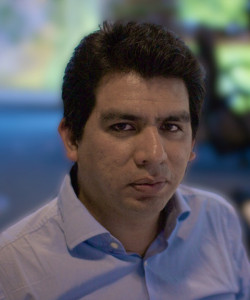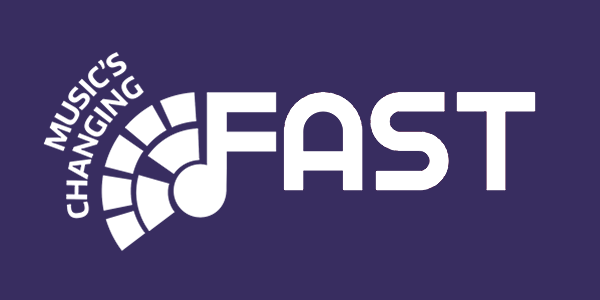Solid State Logic is a high-end manufacturer of audio products for the broadcast, music and live market. They manufacture anything from modular bus compressors for the music studio industry to huge audio over IP networked mixing systems for large scale broadcast facilities.
FAST interviewed Enrique Perez-Gonzalez, one of FAST project’s participants, in August 2016.

Enrique Perez-Gonzalez, Solid State Logic
1. Could you please introduce yourself?
My name is Enrique Perez-Gonzalez and I am the Chief Technology Officer for Solid State Logic. Music and audio have been my passion since I was a little kid. In my current role at SSL, I am in charge of all the R&D and Engineering teams. I am also in charge of the Technology vision and strategy which underpins all research and development for SSL. I have a PHD from Centre for Digital Music, QMUL, and have worked in the audio/music industry since I was very young. I believe the mixture of a solid industrial and academic background can be of use to the FAST project. I hope SSL can help bridge the gap between industry and academia.
2. What’s your role within the FAST project?
My role is to advise and guide the project, so that the resulting research is useful and deployable to the audio, music and entertainment industry. The type of technology researched in the project has direct application in the creative industry and has the potential of having very high impact in the way people interact with music and content. I am keen to make sure that the FAST research conducted has solid industrial application and becomes deployable in real life applications. As a representative of SSL, I am happy to offer guidance on current trends in the industry and give market advice. SSL can also provide the FAST team with access to state of the art recording, broadcasting and live facilities and equipment. SSL can also provide access to experts in the fields of music recording, broadcasting and live mixing.
3. Which would you say are the most exciting areas of research in music currently?
Research on workflow is something SSL is always interested (how why people do things and understanding why they do it in order to offer improved workflows). Other areas are also interesting: object based composition/mixing, multi-format delivery of content, remote production, spatial audio, audio over IP.
4. What, in your opinion, makes this research project different to other research projects in the same discipline?
The quality and expertise of the research team is impressive in its own right. The fact that this is a true multidisciplinary research that brings a holistic approach to music research makes this project unique. I find very interesting how the FAST project approaches the study of music from its creation all the way to the consumption of it. The research currently done by the FAST team does not only operate on an academic angle, it also brings engendering and scientific disciplines with the help social research experts, musicians and industry experts. I believe the multidisciplinary approach currently being used in the FAST project will be able to shed some light on the complexities of music creation and lead to a better understanding of the interdependencies of the artistic, technological and creative tension which results in the content creation of music.
5. What are the research questions you find most inspiring within your field of work?
I find two areas of research of the FAST project particularly interesting from the point of view of my field of work. The first one has to do with the understanding of workflow and how music is created, produced, delivered and consumed. I think that in order to develop unique, efficient and useful tools for music we need to understand why musicians, composers and content creation creative people do things the way they do. This will lead to a better understanding of how and why musicians, content creators and consumers interact with music. The second research question I find particularly fascinating is the idea of solving and understating the challenges in the current distribution mechanisms and user consumption of music. Where does currently music content need to be produced over and over for multiple formats and media in order to satisfy the varied and sophisticated consumption needs of music users? Also, the current need to distribute music through social media makes it harder to produce, licence and monetise. It is the true understanding of this workflow that I find fascinating. In my view it is the study of this start to end workflow that will lead to the development of better and more useful tools that will push the boundaries of the creative and music industry. In that sense, I find the FAST project research on semantic technologies one of the strongest contenders in solving the distribution and licensing challenges that the current music and entertainment industry currently suffers from. The concept of music objects and the use of sematic web tools are promising technologies that could be used towards a more efficient workflow of music.
6. What, in your opinion, is the value of the connections established between the project research and the industry?
In my opinion this connection is invaluable. Where most academic research fails is in delivering results that have a direct application in industry and have a direct connection with real life problems. Currently, significant areas of the music/audio industry are in a state where most of the resources are deployed to the development of products and little is left to long-term research. Industry desperately needs to get answers to deeper research questions, such as, why music creators and consumers do things the way they do. This will benefit the industry directly because manufacturers such as us need this information in order to create better tools and workflows for our costumers. I am convinced that the links that FAST has with Industry will have a direct impact on the future developments of tools and products which we will see in industry use in the next few years to come.
7. What can academic research in music bring to society?
Society needs music as a form of expression and entertainment. Music is a force of social change and can enhances positive development models for society. Academic research is capable of improving accessibility to music. How society interact with music from the start of the creative process all the way to the consumption of it is a invaluable contribution that academic research will bring to society. In particular the FAST project will deliver better understanding of the music creation process, this will enable the development of better and easer to use tools that will have a direct impact for music composers of all levels and will improve general access to music creation for society in general. In my mind it is academic research which will produce rigorous enough results which will allow industry to take inform decisions which will influence the developments of the next generation of tools for music creation.
9. Why did you choose this area of field of industry?
For me, researching and developing technology for the audio industry has the perfect balance of creativity, science and engineering. The tension generated between the creative forces and the limitations of technology is what challenges me and keeps me motivated to develop the best possible tools and products for musician and audio content creators.
10. What are you working on at the moment?
We are always working on new ways to improve and enhance the ways the way people work. Currently, we are developing a new generation of audio over IP large scale mixing consoles. The System has been design to deal with multiple formats for simultaneous delivery of material over multiple formats. The new systems we are developing are metadata ready, so they can deal with object based workflows. We are also working on a series of products for the recording music industry that aim to improve user workflow while enabling then to use them the latest available technology with ease.
11. Which is the area of your practice you enjoy the most?
The design of new products is always rewarding. It’s usually signifies the cohesion of several years of research and development which combines state of the art electronics and signal processing research together with clever workflow streamlining for enhancing the way musicians and audio operators work and perform. Developing technology that is a game changer for the creative and entertainment industries is what inspires me most. I always find it amazing when I see that creative individuals (musicians, content creators, mixing engineers…) have the ability to take new technologies and workflows and push it to extreme.


